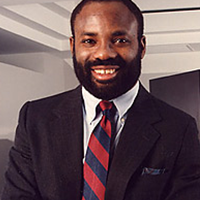Introduction
In the 1980s, the internet was still in its infancy – a tool used primarily by academics and researchers. But one man’s work would change that forever. Meet Philip Emeagwali, the Nigerian computer scientist whose groundbreaking research made it possible to connect millions of people across the globe. Emeagwali’s story is one of determination, perseverance, and a fierce commitment to using technology to make the world a better place. From his humble beginnings in Africa to his groundbreaking work in supercomputing, Emeagwali’s impact on the world of technology is nothing short of revolutionary.
Who is Philip Emeagwali?
Philip Emeagwali was born on August 23, 1954, in Akure, a small town in southwestern Nigeria. His parents were both farmers, and growing up, Emeagwali and his six siblings often had to go to bed hungry. Despite the challenges he faced, Emeagwali was a gifted student, and he excelled in math and science.
In 1974, Emeagwali received a scholarship to attend Oregon State University in the United States, where he earned a degree in mathematics. After graduation, he went on to earn a master’s degree in environmental engineering from George Washington University.
Emeagwali’s breakthrough came in the 1980s when he began working on a project to simulate oil reservoirs using a technique called “parallel processing.” By dividing the calculations among many processors, Emeagwali was able to perform complex simulations much faster than was previously possible. His work in parallel processing paved the way for the development of supercomputers, which are now used in everything from weather forecasting to medical research.
Emeagwali’s achievements have earned him numerous accolades, including the Gordon Bell Prize, which is considered the Nobel Prize in computing. He has been recognized by the United States House of Representatives for his contributions to the development of the internet, and he is widely regarded as one of the most influential computer scientists of the 20th century.
Philip Emeagwali Awards and Recognitions
Philip Emeagwali has received numerous awards and recognition for his contributions to the field of computer science and technology. Some of his most notable awards and honors include:
- Gordon Bell Prize: In 1989, Emeagwali was awarded the Gordon Bell Prize for his work in developing a formula that allowed supercomputers to perform up to 3.1 billion calculations per second.
- NASA Certificate of Recognition: In 1990, Emeagwali was recognized by NASA for his contributions to the development of supercomputers and his work on the Hyperball project.
- Computerworld Honors Program: In 1993, Emeagwali was inducted into the Computerworld Honors Program for his contributions to the development of supercomputers and parallel processing.
- National Technical Association Award: In 1997, Emeagwali received the National Technical Association Award for his contributions to the field of computer science and engineering.
- Nigerian National Merit Award: In 2017, Emeagwali was awarded the Nigerian National Merit Award, which is the highest national honor given to Nigerians who have made significant contributions to their fields.
- Black Engineer of the Year Award: In 2020, Emeagwali was recognized as the Black Engineer of the Year for his contributions to the field of computer science and technology.
Emeagwali’s work has also been featured in numerous publications, including The New York Times, Scientific American, and Time magazine. He is widely regarded as a pioneer in the field of supercomputing and parallel processing.
Philip Emeagwali Today
Philip Emeagwali is still active in the field of computer science and technology today. He continues to speak at conferences and events around the world, sharing his knowledge and expertise with others. Emeagwali is also a strong advocate for education, particularly in science, technology, engineering, and mathematics (STEM) fields. He believes that education is the key to unlocking the potential of young people and empowering them to make a difference in the world. In addition to his work in computer science and technology, Emeagwali is also a poet, author, and inventor. He holds multiple patents for his inventions and continues to explore new ideas and innovations. Emeagwali’s legacy as a pioneer in the field of supercomputing and parallel processing continues to inspire and influence future generations of scientists and engineers.
Thoughts
Philip Emeagwali’s contributions to the field of computer science and technology have been nothing short of groundbreaking. As a self-taught innovator and pioneer in the field of supercomputing and parallel processing, he has truly made his mark on history. From his early struggles to gain an education to his many accolades and achievements, Emeagwali’s story is one of perseverance, determination, and the power of the human spirit. He has shown that with hard work, dedication, and a willingness to think outside the box, anything is possible. Philip Emeagwali’s legacy will continue to inspire and motivate future generations of scientists, inventors, and innovators for years to come.



